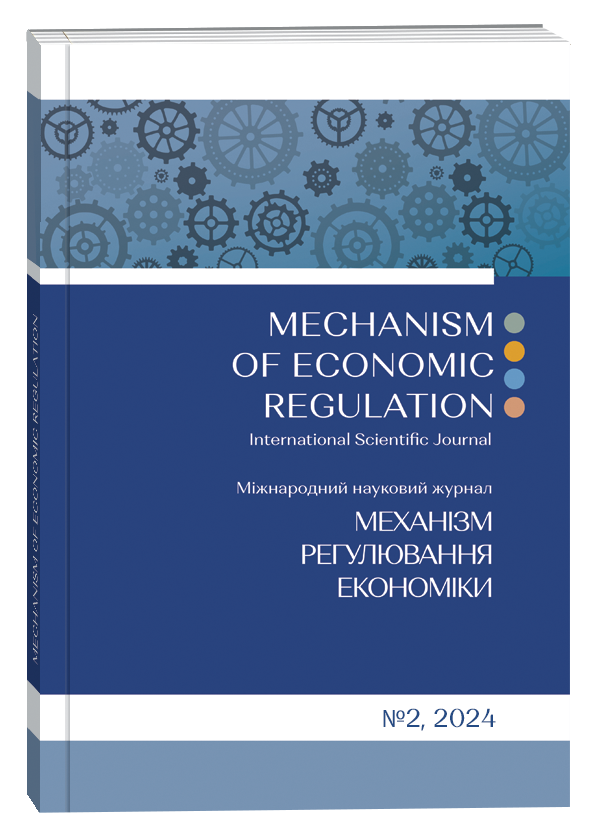ANALYSIS OF THE CURRENT STATE OF INFORMATION SECURITY IN UKRAINE
Abstract
The article examines the issue of analyzing the current state of information security in Ukraine. It is emphasized that modern realities testify to the effectiveness of mass information attacks, bots and fakes as tools for disorientation, intimidation and manipulation of society. The issue of information security and culture, especially in the conditions of war, becomes a matter of survival of man, society and the state. This concerns not only the interests of the state, but also the rights and freedoms of every individual. The basis of modern information security is data integrity, information availability, confidentiality and reliability of its preservation. As a conclusion, it is said that the analysis of the current state of information security of the state indicates that the provision of this security is based on the activities of the information structures of the state. These structures must ensure the security of information of the state and its subjects in the conditions of globalization and growing threats of international terrorism. Unfortunately, there are a number of negative factors in Ukraine that complicate the creation of such information structures, and one of them is the inconsistency between state authorities in matters of ensuring information security. Modern threats to information security go beyond the borders of our state and have global consequences that encroach not only on the national space, but also on the international order. In order to prevent and counter modern information threats, it is necessary not only to adopt relevant normative legal acts, but also to ensure the functioning of the institutional mechanism for ensuring information security, including educational programs. This involves the systematic activity of state-legal institutions, which must effectively realize national interests in the information sphere. They should be able not only to respond to the spread of information manipulation and false information, but also to anticipate conflicts and shape the information culture of society. In addition, taking into account global threats and challenges, effective countermeasures against information aggression is possible with the participation of international organizations, institutions and the international community.
References
Лизанчук В.В. Інформаційна безпека України: теорія і практика: підручник. Львів : ЛНУ ім. Івана Франка, 2017. 725 с.
Інформаційна безпека: підручник / під ред. В.В. Остроухова. Київ : Видавництво Ліра-К, 2021. 412 с.
Кавун С.В., Носов В.В., Манжай О.В. Інформаційна безпека: навчальний посібник. Ч. 2. Харків : Вид. ХНЕУ, 2018. 196 с.
Морозов О.Л. Інформаційна безпека в умовах сучасного стану і перспектив розвитку державності. URL: http://www.viche.info
Шатун В.Т. Інформаційна безпека – невід’ємна складова національної безпеки України. Наукові праці Чорноморського державного університету імені Петра Могили комплексу «Києво-Могилянська академія». 2016. Т. 267. Вип. 255. С. 174–180.
Боднар І. Інформаційна безпека як основа національної безпеки. Механізм регулювання економіки. 2014. № 1. С. 68–75.
Саприкін О.А. Фейк як інструмент інформаційної війни проти України. Бібліотекознавство. Документознавство. Інформологія. 2016. № 1. С. 87–94.
Hridin O.V., Reznik N.P., Chukina I.V., Krasnorutskyy O.O. and Mykhaylichenko M.V. Mechanisms and tools of personnel management in institutional economics. AIP Conference Proceedings 2413. 2022. DOI: https://doi.org/10.1063/5.0089330
Резнік Н.П., Костиляну В.А. Антикризове управління підприємством, як засіб захисту підприємства від банкрутства. Вісник ХНАУ. Серія : Економічні науки. 2019. № 4(1). С. 213–223.
Zahorodnia A., Reznik N., Chornenka L. Generalization of the influence of foreign experience of the digitalization process on the economic security of enterprises. Int. J. Innov. Technol. Econ. № 4(36). DOI: https://doi.org/10.31435/rsglobal_ijite/30122021/7744
Lyzanchuk, V. V. (2017). Information security of Ukraine: theory and practice: textbook. Lviv: LNU named after Ivan Franko, 725 p.
Ostroukhova, V. V. (eds.) (2021). Information security. Textbook. Under the editorship. Kyiv: Lira-K Publishing House, 412 p.
Kavun, S. V., Nosov, V. V., Manzhai, O. V. (2018). Information security. Tutorial. Part 2. Kharkiv: Ed. Khneu, 196 p.
Morozov, O. L. Information security in the conditions of the modern state and prospects for the development of statehood. http://www.viche.info
Shatun, V. T. (2016). Information security is an integral component of the national security of Ukraine. Scientific works of the Black Sea State University named after Peter Mohyla complex "Kyiv-Mohyla Academy", 267, 255, 174–180.
Bodnar, I. (2014). Information security as the basis of national security. Mechanism of economic regulation, 1, 68–75.
Saprykin, O. A. (2016). Fake as a tool of information war against Ukraine. Library science. Documentary science. Informatology, 1, 87–94.
Hridin, O. V., Reznik, N. P., Chukina, I. V., Krasnorutskyy, O. O. and Mykhaylichenko, M. V. (2022). Mechanisms and tools of personnel management in institutional economics. AIP Conference Proceedings 2413, https://doi.org/10.1063/5.0089330
Reznik, N. P., Kostylyanu, V. A. (2019) Anti-crisis management of the enterprise as a meansprotection of the enterprise from bankruptcy. KHNAU Bulletin. Series: Economic sciences, 4(1), 213–223.
Zahorodnia, A., Reznik, N., Chornenka, L. Generalization of the influence of foreign experience of the digitalization process on the economic security of enterprises. Int. J. Innov. Technol. Econ., 4(36), https://doi.org/10.31435/rsglobal_ijite/30122021/7744


